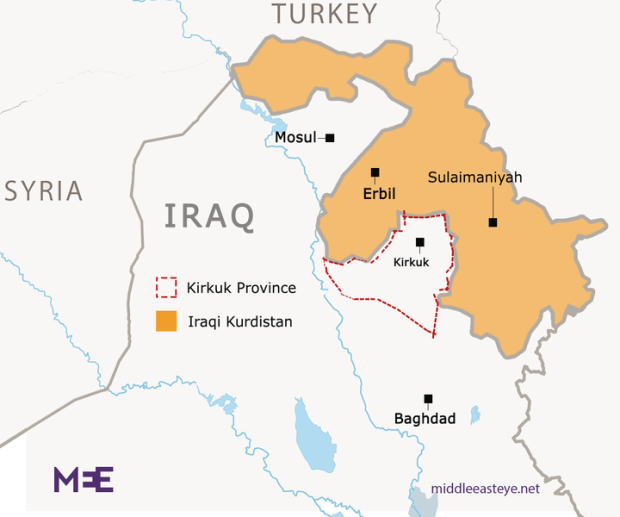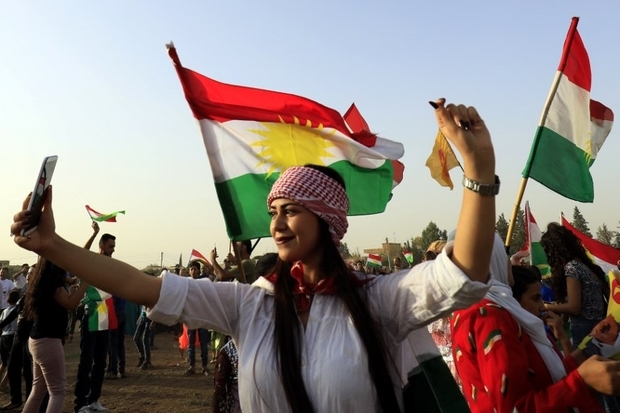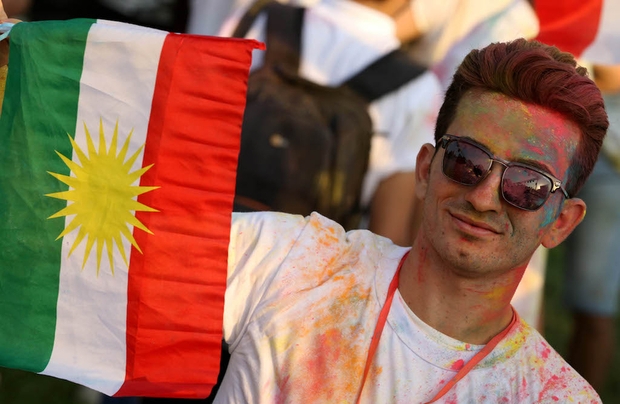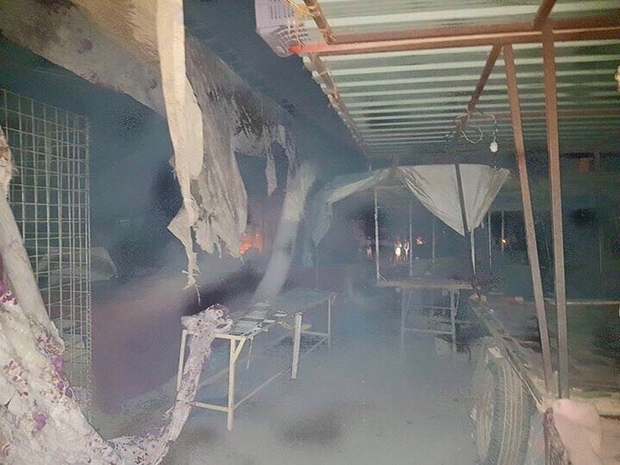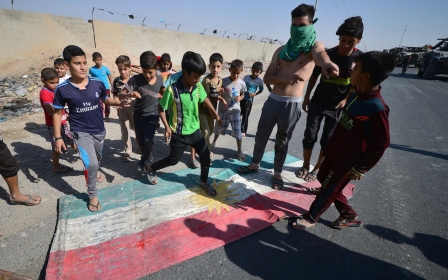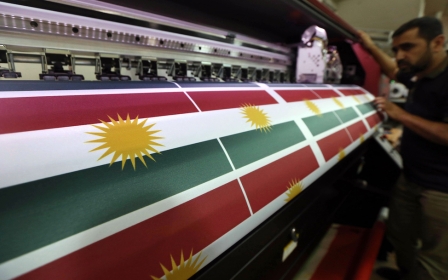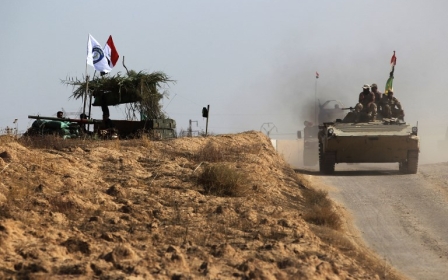What you need to know: The Kurds in Iraq
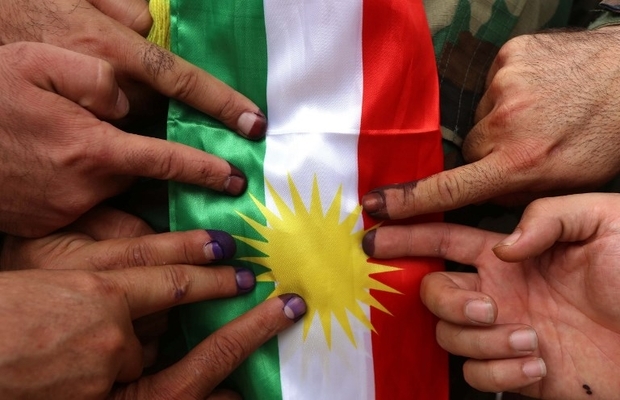
Iraqi Kurds overwhelmingly backed independence on 25 September. But the non-binding vote has sparked tension in the Kurdish region of the country, where Iraqi forces have been accused of burning Kurdish homes in Kirkuk.
Who are the Kurds?
The Kurds are the fourth-largest ethnic group in the Middle East, with more than 30 million living across Iraq, Turkey, Syria and Iran. While they have increasingly fought for autonomy, the Kurdish people have never had a true state of their own (other than the very short-lived Republic of Mahabad in 1946).
Kurds hoped for an independent homeland after the First World War, and there were provisions made for a Kurdish state in the 1920 Treaty of Sevres. But these aspirations were dashed by the Treaty of Lausanne, which set out boundaries for modern Turkey in 1923, leaving the Kurds as a minority in their respective countries.
The Kurdish Democratic Party (KDP), currently the dominant faction in Iraqi Kurdistan, was founded in 1946.
Parts of Kurdistan are recognised by Iran and Iraq. Northern Iraq is home to the autonomous region known as Iraqi Kurdistan or the Kurdish Regional Government (KRG), which was formed in 1992 by the Kurdistan National Assembly.
But attempts to establish true statehood have come to nothing as the Kurds battle against bigger neighbours.
In 1988, thousands of Kurdish civilians were killed in Halabja on the Iraqi-Iranian border in a gas attack carried out by the Iraqi government led by Saddam Hussein. And in 1991, 1.5 million Kurds were forced to flee into the mountains of northern Iraq, fearing a backlash following a Kurdish rebellion.
A referendum on independence for Kurdish Iraq was called for 25 September, despite widespread opposition from Iran, Iraq and Turkey, as well as the US and Europe.
Ankara and Tehran feared it would inflame the separatist aspirations of their own sizeable Kurdish population, while beyond the region there are fears it could destabilise further an already fractious Middle East.
Baghad demanded that Iraqi Kurdistan cancel the vote and asked that foreign governments close their diplomatic missions in Erbil, the Kurdish capital.
Why was there an independence referendum?
Massoud Barzani, the former leader of the peshmerga, the military force of the KRG and president since 2005, led the campaign for independence. Days before the vote, he said that the Kurds in the country “refuse to be subordinates”.
“From World War One until now, we are not a part of Iraq. It’s a theocratic, sectarian state. We have our geography, land and culture. We have our own language,” he said just three days before the referendum.
Another said that Iraq had not provided the Kurds with support in the fight against the Islamic State (IS) group. "When IS came we wanted money and we didn’t get any to fight them," he complained.
An overwhelming number of Iraqi Kurds cast their votes in favour of independence, with a 73 percent turnout and 93 percent yes vote. The enthusiasm for independence was massive in Erbil, with crowds gathering to celebrate. Even before polls closed, Kurdish revellers began to chant: "Bye bye Iraq! Bye bye Iraq!"
What was the international reaction? Did anyone back the result?
The first country to openly support the Kurds’ vote on independence was Israel - which at the same time, has opposed the recognition of a Palestinian state.
"(Israel) supports the legitimate efforts of the Kurdish people to achieve their own state," Prime Minister Benjamin Netanyahu said in a statement.
Israel has maintained discreet military, intelligence and business ties with some Kurdish groups since the 1960s, viewing the group as a buffer against shared Arab adversaries.
But most players in the region were not that happy...
Iraq's central government imposed sanctions on Kurdish banks and halted all foreign currency transfers to the Kurdish region.
It also placed an air ban over the KRG from 6pm on the day of the vote itself.
More than 400 Kurdish travel and tourism companies were directly affected by the flight ban and 7,000 jobs put at risk in the sector, Erbil-based Rudaw TV said.
Ankara has threatened a series of measures, including blocking crucial oil exports from the region via Turkey. It also threatened Iraqi Kurds with economic sanctions and military action. And Iran threatened to join Baghdad in imposing economic sanctions.
The United States said it did not recognise the vote but also urged an end to "threats of reciprocal actions" by the KRG's neighbours. On 29 September, US Secretary of State Rex Tillerson said: "The vote and the results lack legitimacy and we continue to support a united, federal, democratic and prosperous Iraq," he added.
Meanwhile the EU called the referendum "counterproductive", saying that such moves must be avoided.
So what's happening now?
There were clashes between the peshmerga and the Iraqi army and Shia-dominated Popular Mobilisation Units (PMUs) in Kirkuk, on 20 October.
The city is the capital of the Kirkuk Governorate of Iraq and has a large Kurdish population. The city also sits on the edge of a vast oil field and has been at the heart of a long dispute between the region and Iraq's central government.
While Kirkuk is sited around 30km outside of the Kurds' autonomous region, Kurdish forces were quick to move in to secure the city and its oil wells when Iraqi forces were repelled by Islamic State forces in 2014.
Then on 18 October, Iraqi government forces retook the northern province of Kirkuk and its lucrative oil fields, as well as formerly Kurdish-held areas of Nineveh and Diyala provinces, some 40 percent of territory held by the Kurds.
Shia paramilitary groups, including the Hashd al-Shaabi, have been accused by Kurdish authorities of arson and looting Kurdish homes in areas retaken by Iraqi forces.
Photographs sent to Middle East Eye by KRG representatives appear to show homes looted and burned in the city.
Iraqi forces on Friday took control of the last district in the oil-rich province still in the hands of Kurdish Peshmerga fighters following a three-hour battle, Iraqi security sources said.
What's next for the Kurds?
Less than a month ago, Barzani seemed to be in a strong position: more than 90 percent of voter who cast a vote in the referendum had backed his call for independence. Kurdish forces controlled large areas of oil-producing Iraq. His legacy as a national leader seemed assured.
But now he faces calls to resign following the loss of oil-rich Kirkuk. The oil fields, which were previously controlled by KDP peshmerga, were responsible for 280,000 of the KRG's total of 600,000 barrels per day. Any prospective Kurdish state would be reliant on them for economic independence: their loss deals a serious blow to that dream.
The Kurdish political establishment is extremely fractured along both party and geographical lines. Barzani has blamed the Patriotic Union of Kurdistan (PUK), a leftist party that broke off from the KDP in the 1970s, for the setbacks.
"In reference to the recent events in Kirkuk, the president states that some people from a certain political party had unilaterally paved the way for such an attack," Barzani said on 17 October. In retaliation, the PUK blamed the KRG's refusal to negotiate with Baghdad.
On 25 October, the KRG offered to freeze the results of the vote as part of an offer to defuse the crisis with Baghdad, as well as call for an immediate ceasefire and a halt to all military operations.
The dream of a Kurdish state is not dead - but has been dealt a serious blow. As analyst Patrick Osgood, a former Kurdistan bureau chief at Iraq Oil Report, put it: "We can essentially forget about the KRG as a cohesive government. It does not exist."
Middle East Eye propose une couverture et une analyse indépendantes et incomparables du Moyen-Orient, de l’Afrique du Nord et d’autres régions du monde. Pour en savoir plus sur la reprise de ce contenu et les frais qui s’appliquent, veuillez remplir ce formulaire [en anglais]. Pour en savoir plus sur MEE, cliquez ici [en anglais].


